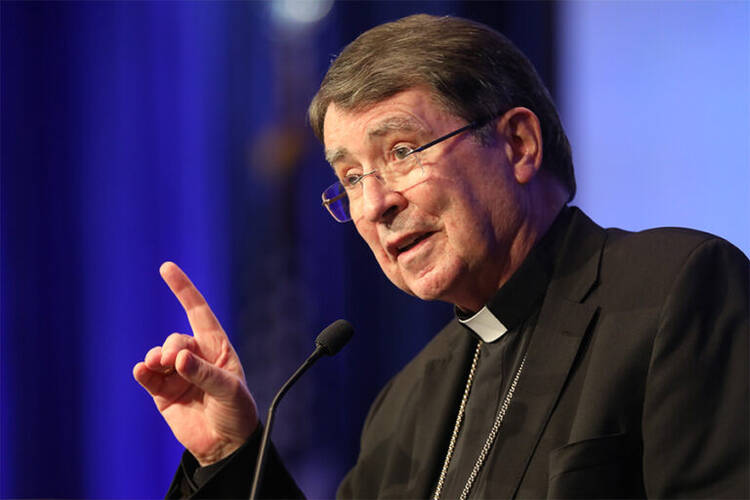VATICAN CITY (CNS) -- The polarization Pope Francis sees in the Catholic Church in the United States is not only a U.S. problem, Cardinal-designate Christophe Pierre, Vatican nuncio in the United States, told Vatican News.
“Polarization exists all over the world today, and we see it especially in politics,” the 77-year-old French-born prelate said in the interview published Sept. 7.
The divisions and hardening of positions come “when one shuts down or forgets people, concrete situations, and goes toward ideas,” he said, adding that in the United States it often is referred to as a “culture war.”
The cardinal-designate was responding to a question about Pope Francis’ remarks to Jesuits in Lisbon, Portugal, in August that the Catholic Church in the United States has “a very strong reactionary” element that is well-organized and refuses to see how Catholic doctrine can and must mature.
Cardinal-designate Pierre was responding to a question about Pope Francis’ remarks to Jesuits in Portugal that the Catholic Church in the United States has “a very strong reactionary” element.
As an example of how polarization occurs, the cardinal-designate pointed to the issue of migration, which is “a big problem in our society and not only in the United States. It is a concrete problem; there is no other way out but to solve it. But, especially in the United States, society seems unable to solve it and (instead) polarizes around solutions that are never put into practice.”
The Catholic Church in the United States, on the other hand, “has done extraordinary work over the last 50 years in defending real values: the value of life and the fight against abortion, the defense of the poorest,” he said. “The American church is extraordinary in defending the poorest.”
But Pope Francis sees a risk in people focusing only on the “value” to be defended and not on the persons involved, he said. “We must always defend the lives of concrete people. And the church does this.”
When people are the focus, the church seeks partners in society with whom it can cooperate to promote practical initiatives inspired by those values, he said, pointing to the “wonderful movement” among U.S. Catholics to support and accompany mothers in difficulty.
“This is what the pope is asking of us,” Cardinal-designate Pierre said. “We are not only defenders of ideas, because if I defend only one idea, whoever disagrees with me becomes my enemy.”
“This is what the pope is asking of us,” Cardinal-designate Pierre said. “We are not only defenders of ideas, because if I defend only one idea, whoever disagrees with me becomes my enemy.”
Asked about opposition or fears regarding the upcoming “synod on synodality,” the nuncio said that “some people are afraid, many people have demonized the idea of synodality because of a lack of understanding of what the Holy Father wants.”
“I think the pope launched it because he sees that society has changed” and that all members of the church must work and pray together to find new ways to share the Gospel in a new situation, he said.
The idea, he said, is “to walk together, as a church, through the method of encounter and dialogue,” but “many people are a bit afraid of dialogue because for dialogue you have to open up and you have to be a bit poor and look for solutions together.”
“Unfortunately, many people have not read all of Francis’ interventions well, when for example he says, ‘We must be together, dialogue, listening to each other. Listening, praying together and asking the Holy Spirit to inspire us.’ There are those who think it’s about making a new church that has nothing to do with the old church and they start saying, ‘This is a disaster!’”
"The challenge today is to overcome this fear and start walking," Cardinal-designate Pierre said. "We must do it with a great deal of modesty, listening to each other, seeing what we have already done to evangelize the new world, exchanging ideas and then drawing some conclusions for evangelization, not for changing all the structures or drawing conclusions that are perhaps part of the agenda of some groups."








